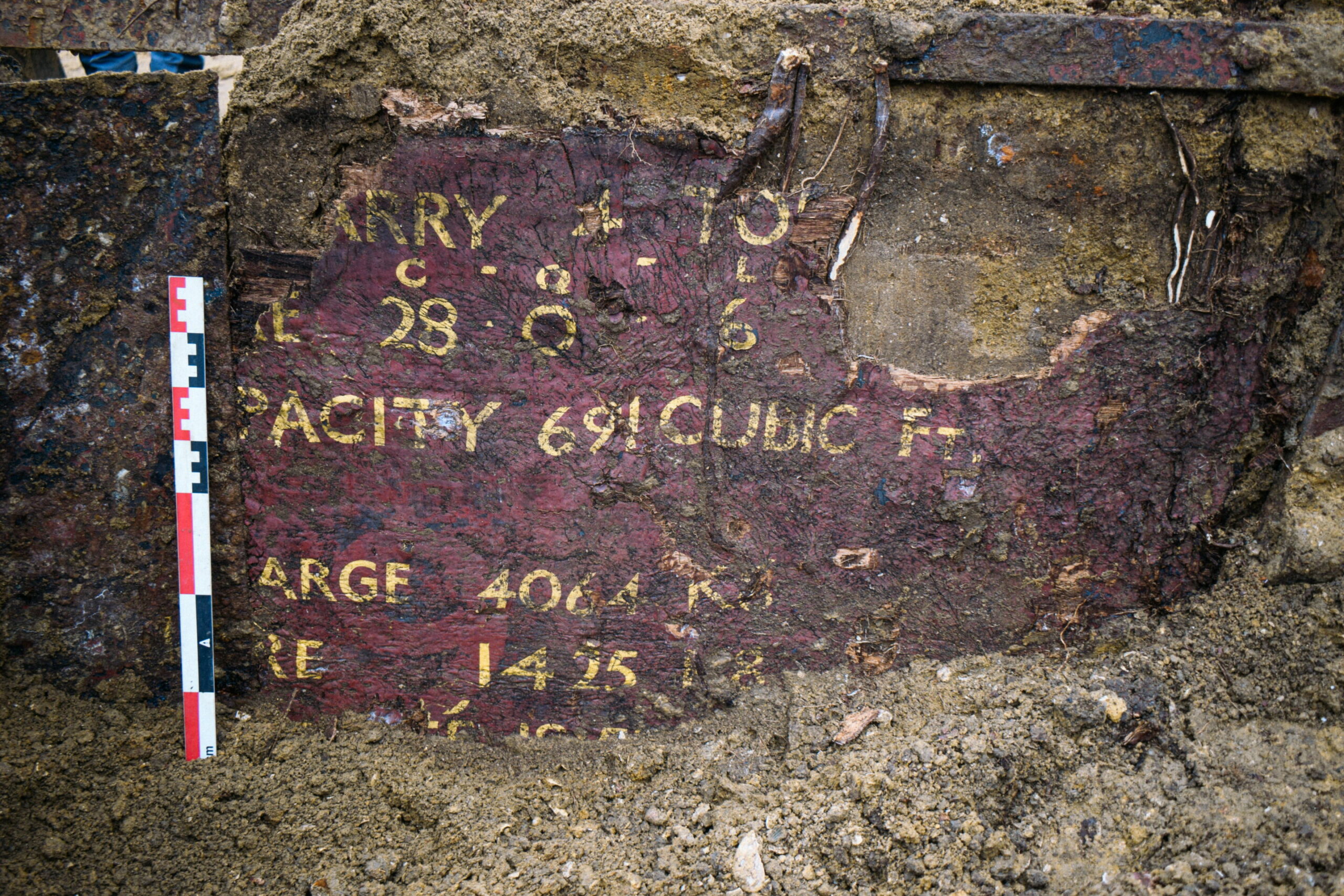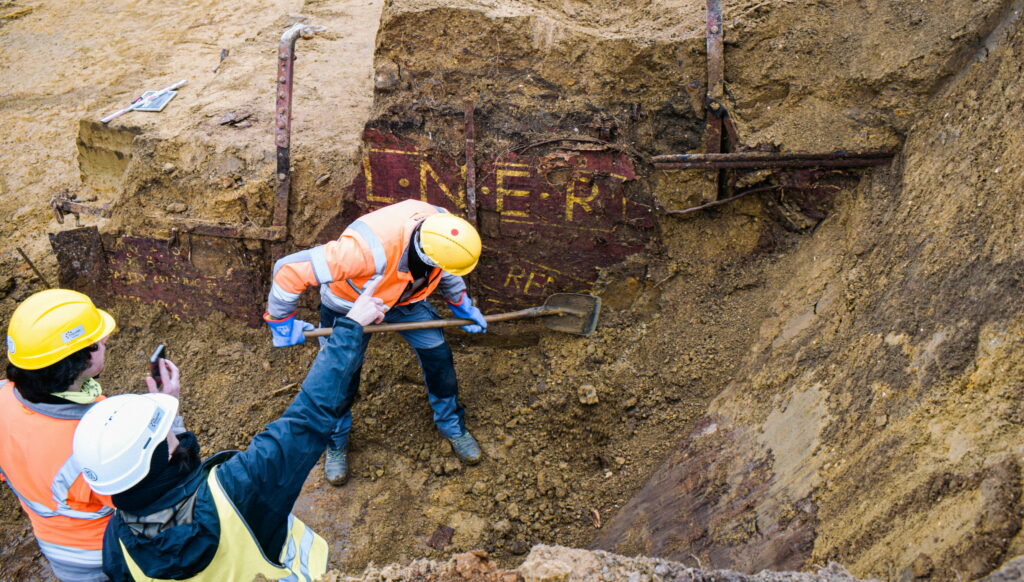Archaeologists in Antwerp have discovered a nearly 100-year-old buried train wagon belonging to the London North Eastern Railway (LNER), hundreds of kilometres from its usual home.
During excavations for the preparations for the billion-euro Oosterweel project at the Noordkasteel in Antwerp in January, archaeologists made an extraordinary discovery. They found an entombed train carriage belonging to the LNER, the modern-day operator of trains on the East Coast Mainline in England. Inscriptions on the vehicle show that it dates back to 1930.
"The metal wagon was buried in the embankment and had inscriptions such as '...NITURE REMOVAL TO HOUSE', 'Enquire at any station', 'BK 1820' and 'LNER'," the City of Antwerp announced in a statement this week. It appears that it is a removals truck, used to carry people's belongings when they moved house.

Credit: City of Antwerp
In early 20th century England, simple square boxes would transport belongings by rail. The first model was painted reddish-brown around 1930. The red container was only in use for a few years before changing to a distinctive blue. Railway companies then switched to standardised containers that were easier to load and unload.
The archeologists' find is therefore very rare. However, when they brought it to the surface, the wagon was so fragile that the side collapsed and the entire structure unfortunately shattered.
City authorities noted that it remains a mystery as to how the train reached Antwerp and why it was buried. "It was possibly used as storage space when the Noordkasteel became a recreation site."
Related News
- Mammoth and red deer remains discovered on Metro 3 site in Brussels
- Skeletons dug up during works in city centre give insight into Brussels history
According to British broadcaster ITV News, the LNER has been in touch with the team that dug up the wagon to try and find out more about the curious discovery.
"We are fascinated by the history of our brand. Just last year we celebrated 100 years since the LNER came into being in 1923," LNER Communications Director Stuart Thomas said. "In our 101st year, it is incredible to discover more of LNER history has been buried in a field in Belgium for so many decades."
Archaeologists also yielded finds of ancient ammunition on the site.

